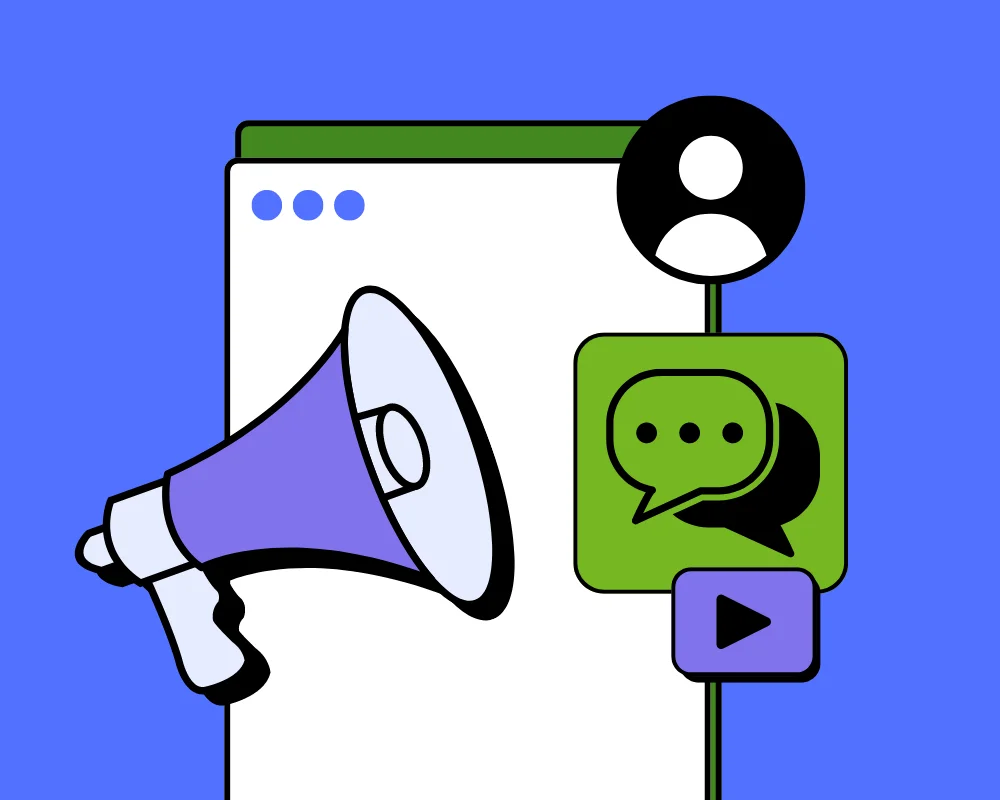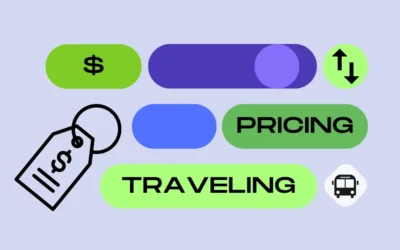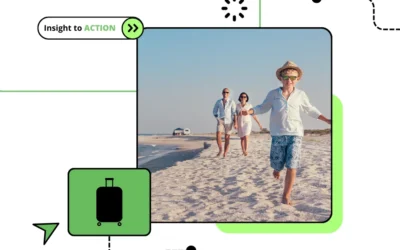Harness the power of digital marketing to help your bus company stay competitive and meet travelers’ expectations.
In the digital era, bus companies face a transformation in how they attract and retain their customers. Digital marketing has emerged as an essential tool for these companies, enabling them to reach their audience more effectively and efficiently. Below, we explore the key benefits of digital marketing for bus companies.
Digital marketing offers countless benefits for bus companies, from increased reach and audience segmentation to personalizing the customer experience and enhancing brand reputation.
By adopting digital marketing strategies, bus companies can attract customers, optimize their operations, and increase profitability. In an increasingly digital world, leveraging these tools is essential to staying competitive and meeting the expectations of modern customers.
What is digital marketing?
Digital marketing is the set of strategies and techniques that use digital media and channels to promote products, services, or brands. It covers a wide array of strategies and tools aimed at attracting, converting, and retaining customers through digital channels.
This discipline encompasses all mobile devices, electronics, and the Internet to shape creative initiatives for user connections. Typically, marketing channels such as search engines, email, social media, and other channels that connect with customers and prospects are used to implement strategies.
What is the difference between an outbound marketing strategy and an inbound marketing strategy?
Digital marketing does not only include inbound or outbound methods but encompasses all strategies that are carried out through a digital channel or platform; it is important to clarify the difference between outbound marketing and inbound marketing because it often generates confusion. Inbound is a methodology that allows to attract customers with valuable content and generate personalized experiences. It is a methodology that is applied within digital marketing. The inbound method seeks to drive the growth of an organization, establishing long-term relationships with people, and supporting them to achieve their goals.
The main difference between inbound and outbound is that the latter seeks the brand’s messages to reach as many people as possible, beyond whether the messages are relevant or desired, generating strategies to seek cold contacts.
On the contrary, inbound marketing is a methodology that attracts consumers who are more prepared to buy, through experience and valuable content, specifically designed to capture the attention and generate the trust of this audience. Implementing teams use content marketing to deliver useful information to target audiences to attract them to their websites.
The main benefits of digital marketing for bus companies
Digital marketing offers numerous advantages for bus companies; starting with reaching a wider audience efficiently and optimizing resources.
By implementing online marketing strategies, such as social media ads, email campaigns, and search engine optimization (SEO), bus companies can promote their services to a segmented and targeted audience. This not only increases brand visibility but also attracts potential customers who are actively seeking transportation options online.
This discipline allows bus companies to interact directly with their customers, enhancing the user experience and fostering loyalty. Digital platforms provide channels to receive immediate feedback, respond to queries, and resolve issues efficiently.
This type of direct interaction not only increases customer satisfaction but also provides valuable insights into market preferences and needs, allowing bus companies to fine-tune their services and marketing campaigns.
Digital marketing provides advanced analytics and performance measurement tools, allowing you to evaluate the effectiveness of your campaigns in real-time. With accurate data on ad performance, click-through rates, conversions, and user behavior, companies can optimize their strategies and maximize their return on investment (ROI).
This ability to continually adjust and improve marketing efforts ensures bus companies remain competitive and relevant in an ever-changing marketplace.
How to implement a digital marketing strategy for bus companies?
Digital marketing enables companies to increase their visibility and reach, boost sales, differentiate themselves from the competition, and gain in-depth market analysis. In the bus sector, it can offer travelers a clear understanding of the benefits and value proposition, aiming to make their interactions with the brand as seamless and direct as possible.
When you rely on a single channel, you leave out a large part of your target audience. Travelers may be unaware of all the advantages, ancillaries, discounts, or benefits they can access. This is why it is important to implement a multichannel marketing strategy and share relevant content, which resolves doubts about the services or products provided, through different channels.
To implement an effective digital marketing strategy, according to HubSpot, it is best to combine different tactics, such as content marketing, SEO, social media marketing, retargeting, and email marketing.
Below we explain each of the digital marketing tactics to consider for an effective strategy:
Content marketing: everything that gives meaning to your website. This includes blog posts and other resources such as ebooks and guides. As well as graphic images, interactive tools, and videos. Answer their questions and provide quality information.
Search engine optimization (SEO) strategy: involves optimizing your website, to increase the chances of appearing at the top of search engine results pages.
Social media marketing: social media channels such as Facebook, Instagram, TikTok, and LinkedIn, allow individuals, organizations, media, and businesses to follow each other’s online activity, interact in virtual conversations, and share content.
Retargeting: traditional advertising is considered an outbound tactic, but since digital marketing provides teams with the necessary data to better segment the audience, you can use retargeting to show ads to people who have visited your website. Remember not to be invasive and to deliver quality information.
Email marketing: it is the preferred communication channel for most professionals and is used by a large number of Internet users, which makes it a powerful tool that you can take advantage of to reach your audience directly.
A digital marketing strategy is likely to be complex for bus companies that have not yet implemented it. However, having an ally to implement it is easier.
For example, Reservamos SaaS provides bus companies with an eCommerce platform that helps them strengthen their digital channels, increase sales, and reduce costs. For this, it has two key modules for a bus company to implement its digital marketing strategy.
It consists of two modules:
- Marketing Module – It provides bus companies with tools to increase traveler retention through effective marketing strategies. In this way they can maintain personalized and automated communication with them, such as reactivating users, recovering users through the abandoned cart, or promoting other sales channels thanks to the integration of user behavior data in the eCommerce with Marketing Automation tools to send push notifications, SMS, emails or WhatsApp messages.
- SEO Module – Allows companies to take advantage of organic searches of travelers on Google, to position the website of each brand, through quality traffic. The module’s automated system facilitates the creation of landing pages or landing pages easily and quickly. Powered by Artificial Intelligence, the keywords of destinations, routes, and terminals are added.




